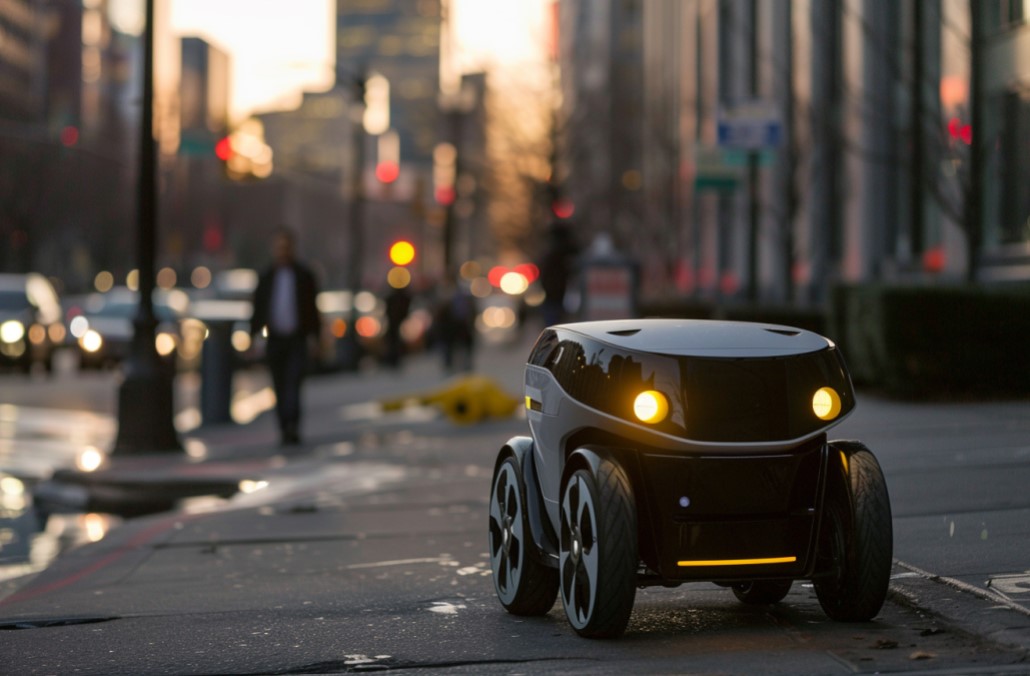Nvidia's Strategic Investment Propels Serve Robotics into the Spotlight: A Deep Dive
A Surprise Announcement and a Soaring Stock
In a move that surprised many market watchers, technology behemoth Nvidia disclosed a significant 10% stake in Serve Robotics, a burgeoning delivery technology company. This revelation, tucked within a regulatory filing late on Thursday, sent Serve Robotics' stock soaring on Friday, underscoring the considerable influence Nvidia wields in the tech landscape.
Nvidia's filing indicated ownership of 3.7 million Serve Robotics shares, valued at approximately $9.8 million based on Thursday's closing price. This investment not only injects substantial capital into Serve Robotics but also bestows upon it the much-coveted "Nvidia halo effect." This phenomenon describes the tendency for companies associated with Nvidia, a recognized leader in artificial intelligence (AI) and computing, to experience a boost in market perception and valuation.
Unpacking the Nvidia Halo Effect
Nvidia's reputation as a technological trailblazer, particularly in AI and graphics processing units (GPUs), has fostered an aura of innovation and success that extends to its investment portfolio. Companies fortunate enough to secure Nvidia's backing often find themselves propelled into the limelight, benefiting from heightened investor interest and positive media coverage.
The Nvidia halo effect is not merely a matter of perception; it's a tangible force with real-world consequences. The association with Nvidia signals to investors and the broader market that a company is at the forefront of technological advancement and poised for growth. This can translate into increased investor confidence, a higher stock price, and greater access to capital.
Serve Robotics: A Rising Star in Delivery Technology
Serve Robotics, a spin-off from Uber Technologies, is a prime example of an upstart company poised to capitalize on the Nvidia halo effect. Specializing in autonomous delivery robots, Serve Robotics aims to revolutionize last-mile delivery logistics. Its robots, equipped with advanced sensors and AI capabilities, navigate sidewalks and urban environments to deliver food, groceries, and other goods.
Nvidia's investment in Serve Robotics is a testament to the potential of autonomous delivery technology and the growing demand for efficient, contactless delivery solutions. The COVID-19 pandemic has accelerated the adoption of online shopping and delivery services, creating a fertile ground for companies like Serve Robotics to flourish.
The Convergence of AI and Robotics
Nvidia's interest in Serve Robotics goes beyond financial gain; it represents a strategic alignment of interests. Both companies operate at the intersection of AI and robotics, two fields with immense potential for synergistic innovation.
Nvidia's GPUs, renowned for their computational power, are essential components in the development and deployment of AI algorithms that power autonomous robots. Serve Robotics, in turn, provides a real-world testing ground for these algorithms, generating valuable data that can be used to refine and improve AI models.
This symbiotic relationship between Nvidia and Serve Robotics underscores the growing importance of collaboration between hardware and software companies in the AI and robotics sectors. By pooling their expertise and resources, these companies can accelerate the pace of innovation and bring cutting-edge technologies to market more quickly.
The Future of Autonomous Delivery
The autonomous delivery market is still in its nascent stages, but it is rapidly gaining momentum. As technology advances and regulatory frameworks evolve, autonomous delivery robots are expected to become an increasingly common sight in cities and towns around the world.
Serve Robotics, with Nvidia's backing, is well-positioned to become a leader in this emerging market. The company's focus on safety, reliability, and affordability has earned it a loyal customer base and a growing list of partners.
Implications for Investors and the Tech Industry
Nvidia's investment in Serve Robotics is a significant development with far-reaching implications for investors and the tech industry as a whole. For investors, it highlights the importance of identifying companies with strong technological foundations and strategic partnerships. The Nvidia halo effect can be a powerful catalyst for growth, but it is essential to conduct thorough due diligence and assess a company's long-term prospects.
For the tech industry, Nvidia's move underscores the increasing convergence of AI and robotics. Companies that can harness the power of both fields are likely to be at the forefront of innovation and disruption. The autonomous delivery market, in particular, is poised for rapid growth, and companies like Serve Robotics are leading the charge.
Conclusion
Nvidia's investment in Serve Robotics is a win-win scenario for both companies. Serve Robotics gains access to Nvidia's technological expertise and market clout, while Nvidia secures a foothold in the burgeoning autonomous delivery market. This partnership is a testament to the power of collaboration and the potential of AI and robotics to transform our world.
As the autonomous delivery market continues to evolve, it will be fascinating to watch how Serve Robotics, with Nvidia's backing, shapes the future of this industry.


